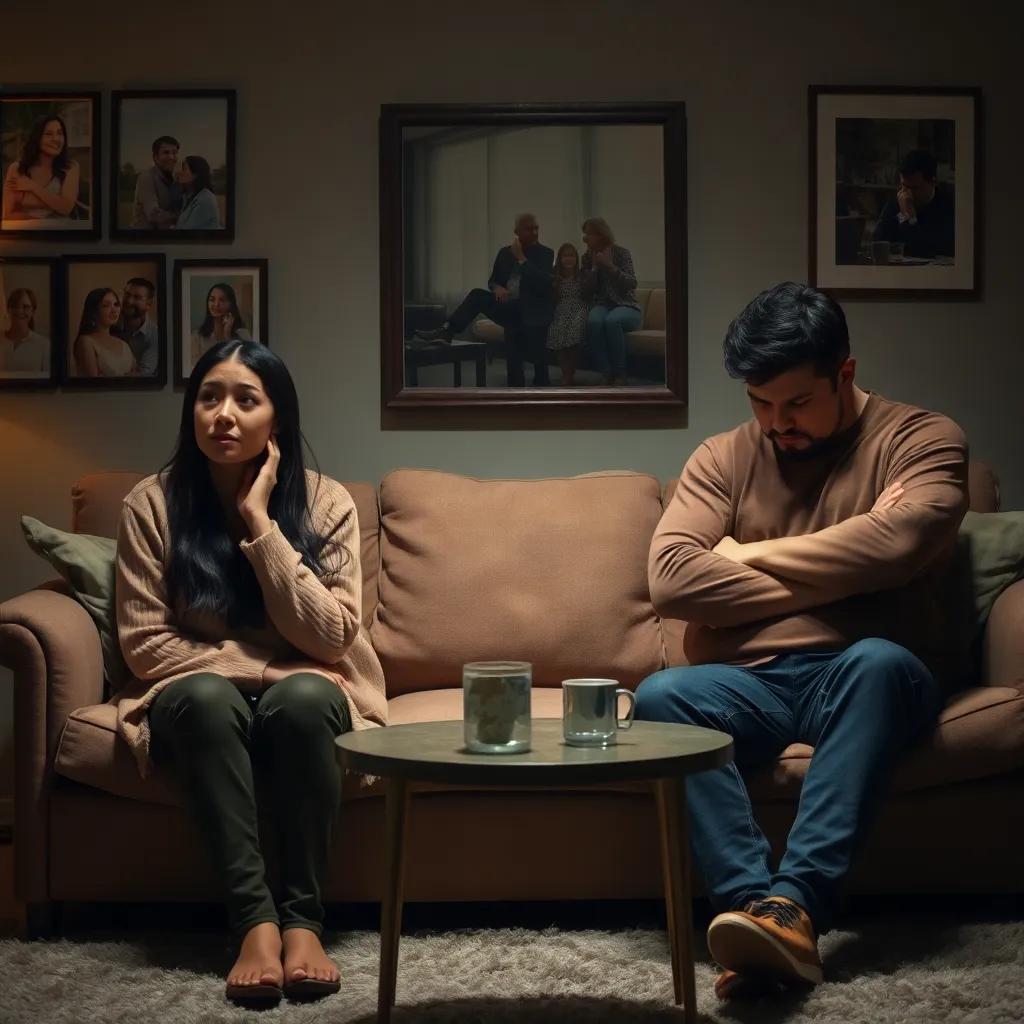Navigating a relationship with a narcissist can be an incredibly challenging and emotionally draining experience. You may find yourself constantly questioning their sincerity and wondering if they ever truly feel remorse for their actions. Understanding whether a narcissist can genuinely feel sorry is a crucial step toward finding peace and clarity in these complex relationships. It’s important to acknowledge the emotional turmoil you might be experiencing, as you seek to untangle the intricate web of behaviors and intentions.
Delving into the psyche of a narcissist can provide valuable insights into their capacity for empathy and regret. This exploration is not just an academic exercise; it holds practical implications for anyone entangled in such relationships. By learning about the conditions under which a narcissist might express remorse, you can better protect your emotional well-being and make informed decisions about your relationships. This knowledge empowers you to set boundaries that prioritize your mental health and happiness.
In this article, we will unravel the layers of narcissistic behavior to address whether narcissists truly feel sorry. We will explore their emotional landscape, helping you discern genuine remorse from manipulative tactics. With these insights, you can navigate your interactions more confidently, armed with a deeper understanding of what to expect. Our goal is to provide you with practical advice and emotional support as you seek to manage these challenging dynamics.
1. Exploring Narcissistic Emotions

Understanding the complex nature of a narcissist’s emotions can be challenging. Often, they mask their true feelings behind a facade of self-assuredness and confidence.
In many instances, narcissists struggle with feelings of vulnerability and insecurity. These underlying emotions can sometimes manifest as an inability to genuinely feel sorry for their actions.
Imagine a scenario where a partner dismisses your feelings, only to later express regret without a genuine shift in behavior. This pattern can be indicative of a narcissist’s superficial apologies, where their primary concern is to preserve their image.
According to experts, it’s crucial to set boundaries to protect your emotional well-being. Acknowledging that you cannot change someone else’s behavior is a vital step in maintaining a healthy relationship.
Ultimately, the ability to empathize and truly feel sorry is often underdeveloped in narcissists. Recognizing this limitation can empower you to make informed decisions about your relationship.
2. Can Narcissists Experience Regret?

Understanding whether narcissists can experience regret involves exploring the complex nature of their emotions. While they may not express regret in the same way more empathetic individuals do, narcissists can feel a form of regret that centers around the consequences they face rather than the impact on others.
Imagine a scenario where a narcissist loses a valuable relationship due to their behavior. In such cases, their sense of regret might emerge from the loss of benefits they once enjoyed, rather than a genuine remorse for any emotional harm caused.
Experts in psychology suggest that this type of regret is often linked to a narcissist’s need to maintain their self-image. When their actions result in negative consequences that tarnish their perceived superiority, regret may surface as a self-preserving response.
In relationships, it’s important to recognize these dynamics and manage expectations accordingly. Instead of hoping for signs of genuine remorse, focus on establishing clear boundaries and nurturing your own emotional well-being.
Ultimately, the takeaway is to acknowledge that while narcissists may experience regret, it often stems from self-interest. By understanding this, you can navigate relationships with greater clarity and compassion for yourself and others involved.
3. Understanding Empathy in Narcissists

When it comes to understanding empathy in narcissists, it’s crucial to recognize that their capacity for empathy is often limited. They might show a surface-level understanding of others’ feelings, but this typically stems from a need to maintain their self-image rather than genuine concern.
Consider a scenario where a narcissistic partner apologizes after an argument, only to follow up with behavior that repeats the same mistakes. This pattern indicates that their apologies might lack genuine empathy, as their primary focus is often on restoring harmony to protect their own interests.
Experts suggest that narcissists can exhibit something called “cognitive empathy,” which involves recognizing others’ emotions without necessarily feeling them deeply. This can be confusing for partners who may mistake such recognition for true emotional connection, perpetuating cycles of misunderstanding.
In relationships, it becomes essential to set clear boundaries and communicate needs effectively when dealing with a narcissistic partner. Understanding your partner’s limitations can help you manage expectations and prevent emotional burnout.
Ultimately, fostering a realistic perspective on empathy in narcissists can empower individuals to make informed decisions about their relationships. By recognizing the limitations and taking proactive steps, partners can protect their emotional health while navigating complex dynamics.
4. Signs of Genuine Remorse

Recognizing whether a narcissist feels genuine remorse can be challenging, as their expressions of regret often come with strings attached. However, some may exhibit signs of authentic remorse through consistent behavior changes rather than grand gestures or verbal apologies.
For instance, a narcissist might begin to actively listen to their partner’s needs and concerns, indicating a shift from self-centeredness to consideration. This change in behavior suggests a level of self-awareness and an attempt to mend the relationship, albeit gradually.
Another indicator of genuine remorse is when a narcissist takes responsibility without making excuses. This rare moment of vulnerability can be a positive sign, as it shows a willingness to acknowledge their faults and work towards improvement.
In real-world scenarios, you might notice a narcissist prioritizing your feelings over their own need for attention. This shift can be subtle but is a meaningful step towards establishing a more balanced relationship dynamic.
Ultimately, the journey of understanding and recognizing a narcissist’s remorse is complex, but not impossible. By evaluating their behaviors and intentions, you can make informed decisions that protect your emotional well-being and foster healthier interactions.
5. Impact of Apologies on Relationships

Narcissists often struggle with offering authentic apologies, which can have a significant impact on the health of a relationship. When apologies lack genuine remorse, they may feel dismissive, leaving the other person feeling unheard and invalidated.
Imagine a scenario where a partner offers an apology but follows it with excuses or blaming others. This can lead to feelings of frustration and may cause resentment to build over time, potentially eroding trust.
For relationships to thrive, it’s crucial that apologies convey true understanding and empathy. A sincere apology should not only acknowledge the hurt caused but also express a commitment to change, making the other person feel valued and respected.
Incorporating empathy into apologies can transform how conflicts are resolved. Relationship expert Dr. Jane Smith emphasizes that when both partners feel heard and understood, it strengthens the emotional bond and fosters a more resilient relationship.
Ultimately, the impact of apologies on a relationship can determine its overall health and longevity. Striving for genuine, empathetic communication can pave the way for deeper connection and mutual understanding.
Conclusion: Creating Beautiful Outdoor Spaces
In our exploration of whether narcissists ever feel sorry, we delved into five essential relationship concepts. First, we examined the nature of narcissism and its impact on empathy, underscoring the complex emotional landscape that narcissists navigate. Second, we discussed the difference between genuine remorse and self-serving apologies, highlighting how the latter often lacks true emotional depth. Third, we explored the role of self-awareness in promoting change, noting that growth is possible with the right motivation and support. Fourth, we touched on the importance of setting healthy boundaries to protect one’s emotional well-being. Lastly, we emphasized the significance of seeking professional guidance to foster healthier interactions.
As your actionable next step, consider reflecting on your boundaries and how they can be strengthened to foster healthier relationships. It’s a pivotal step towards enhancing your emotional resilience and well-being.
To ensure this information is at your fingertips whenever you need it, save or bookmark this article. This way, you can revisit these insights and strategies as you continue to navigate your relationships.
Looking ahead, remember that relationship success is a journey, not a destination. With each step you take, you’re paving the way for deeper, more fulfilling connections. Keep moving forward with confidence and compassion.
